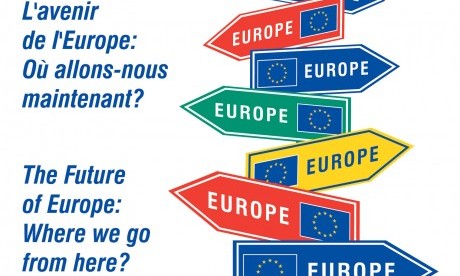French philosopher André Glucksmann finds the situation in Europe “extremely unsettling.” In a Spiegel interview, he discusses the failure of European intellectuals, how divisions could lead to an EU breakup or even hostilities, and why pursuing a United States of Europe is “the wrong goal.”
In France, André Glucksmann is one of the so-called New Philosophers, who turned away from their Marxist beginnings after 1968 and, motivated by Solzhenitsyn’s “The Gulag Archipelago,” wrote off Soviet-style totalitarianism. He is particularly well known in Germany for his two books “The Cook and the Cannibal” and “The Master Thinkers.” His parents were Eastern European Jews and lived in Palestine and Germany before fleeing in 1937 to France, where Glucksmann was born in the same year. He published his autobiography, “A Child’s Rage,” in 2006. As someone who is deeply familiar with German philosophy and has taken a critical look at Heidegger since his university days, Glucksmann has sought to engage in intellectual dialogue with Germany. In his many papers and essays, the 75-year-old has defended the right to intervene in armed conflicts to protect civilians, has championed the Chechens and Georgians in the Caucasus, and has doggedly criticized the West for its tendency to close its eyes to the persistent presence of evil in the world.
Spiegel: Mr. Glucksmann, in light of the intellectual and existential experiences you had in the 20th century as an anti-totalitarian thinker, are you worried about Europe’s future?
Glucksmann: I’ve never believed that all the dangers were averted after the end of fascism and communism. History doesn’t come to a standstill. Europe didn’t step out of (history) when the Iron Curtain disappeared, even if it has occasionally seemed to want to. Democracies tend to ignore or forget the tragic dimensions of history. In this sense, I would say: Yes, current developments are extremely unsettling. Read more
Sources
